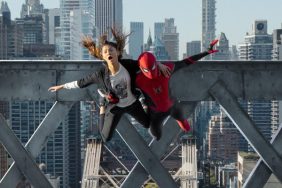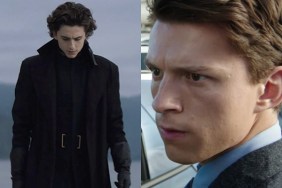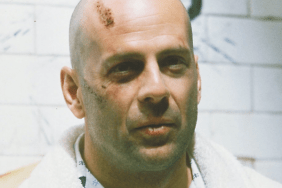Don’t worry, I’m not back in Austin for the third time this year. Even though the Austin Film Festival starts this weekend, I’m sitting this one out, but still supporting the films premiering in my home away from home. The Odd Way Home premieres on Friday night at Austin Film Fest starring Rumer Willis as woman who leaves her abusive boyfriend, kicks her drug habit and meets an autistic man (Chris Marquette) who’s also on his own for the first time. The drama follows them on the road, through frustrations and evolutions.
We got to speak with Willis by phone as she prepared to leave for Austin for the premiere. The daughter of Bruce Willis and Demi Moore, Rumer grew up on movie sets and appeared in some of their films like Hostage and Striptease respectively. Since 2008 Rumer has had a steady output of film and television roles, and a singing career as well.
CraveOnline: I was following your film career with The House Bunny and Sorority Row, but I haven’t seen all your indie films. Were you seeking more independent projects after those studio movies?
Rumer Willis: I wouldn’t say I’m very picky or choosy with particularly what kind of projects. It’s more the characters and the actual projects rather than it being studio or independent.
This might seem like a basic question, but are the characters available in indies more leading roles than the ensemble roles you might be offered in studio movies?
I don’t know if I noticed a difference in either. If I got an offer today for one studio and one independent, even if it was the tiniest part in a studio ensemble I would want to do that just as much as the lead in an independent, depending on what the character was.
Was The Odd Way Home the toughest role you’ve ever played, or close?
Yeah, it definitely pushed me outside of my comfort zone. I really had to explore a lot of different aspects. I haven’t been through, obviously, a lot of the things she’s been through so I really had to do a lot of imagination and backstory about her life and how I’d gotten to the place I had.
What were the most emotional scenes you had to do?
Getting beat up in a bathroom by an ex-boyfriend and detoxing from drugs, they’re pretty tough. It’s not something that you do every day.
What went into those scenes? I guess a beating scene is choreographed on top of character work, and did you have to do some research on the drug scene?
In terms of that, you’re trying to balance staying present in a scene with all the emotion that you’re feeling and also make sure that as the actor you’re not being hurt. Thankfully, in those types of situations, you’re usually working with a lot of professionals who get thrown around every day. We had a stunt guy and a stunt girl who were throwing themselves up against this breakable mirror about 10 times. Just looking at them, I’m going, “Oh my gosh, I don’t know how you do this every day.”
So you had a stunt double for that scene?
No, actually. Everything you see other than I think maybe one little bit is me.
The stunt people were just showing you how to do the mirror stunt and make sure it was all safe?
Yeah.
The Odd Way Home could really speak to abuse victims and people with autism in their life. Have you though about the impact this film could have?
I hope that it really brings a light to not only what you said about abuse, but just about being in a world where we don’t live in judgment. Because someone has autism that we somehow judge them as different. Also that there’s such a spectrum for autism, you can’t look at one person who has autism and say that that encompasses what every person is like because there’s such a wide variety of different colors and shades of it. I think you really have to get to know each individual and I think it’s about people finding each other. Hopefully, if it can get across any message, that we can just live in a world where it doesn’t matter wherever you come from. You can be supportive and create a family.








